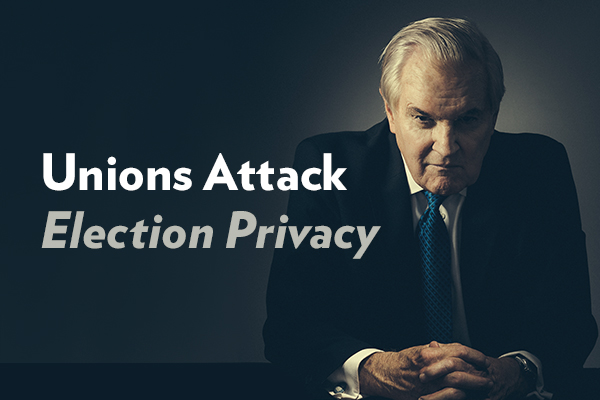Media

Unions Renew Attack on Election Privacy
The principle of secret ballot elections has existed since the second century B.C. in ancient Rome. Now, over two thousand years later, union special interests want to strip government workers of this right.
Legislation has been proposed in Pennsylvania’s General Assembly to share government employees’ personal information with union leaders and eliminate their right to an anonymous union election. Pennsylvanians value their privacy far too much to simply upload it to the ominous database of a national labor union.
Representatives Maureen Madden and Thomas Mehaffie, who are reintroducing the same harmful legislation from last year, want to give government union leaders access to workers’ home and email addresses and cell phone and home phone numbers. Requiring workers to divulge this personal information grossly violates their privacy and exposes them to aggressive unionization tactics.
Put simply, this is an attempt to kill workplace democracy.
Currently, workers can join a union by casting secret ballots, with a simple majority electing the union—much like normal political elections. This proposal, known as “card check,” would eliminate the right to a secret, safe, anonymous election process. Union organizers could pressure workers—in their workplace and even at their homes—to publicly sign cards supporting unionization. If a union collects authorization cards from a simple majority of employees, it becomes the exclusive representative without a traditional election.
If secret ballots are good enough to elect Rep. Madden and Rep. Mehaffie to the House, they should be good enough for unionization. Reintroducing this failed bill will not protect employees.
Reps. Madden and Mehaffie claim they’re just trying to expand workers’ rights. But if that’s the case, why don’t they get on board with real workers’ rights proposals?
Sen. Scott Martin and Rep. Kate Klunk have introduced legislation this session to inform workers of their workplace choices. HB 785 and SB 371 would repeal laws that violate the 2018 Janus v. AFSCME Supreme Court ruling, while also ensuring workers know union membership is voluntary.
Informing workers, not violating their privacy and workplace election rights, is the path to protection and empowerment.